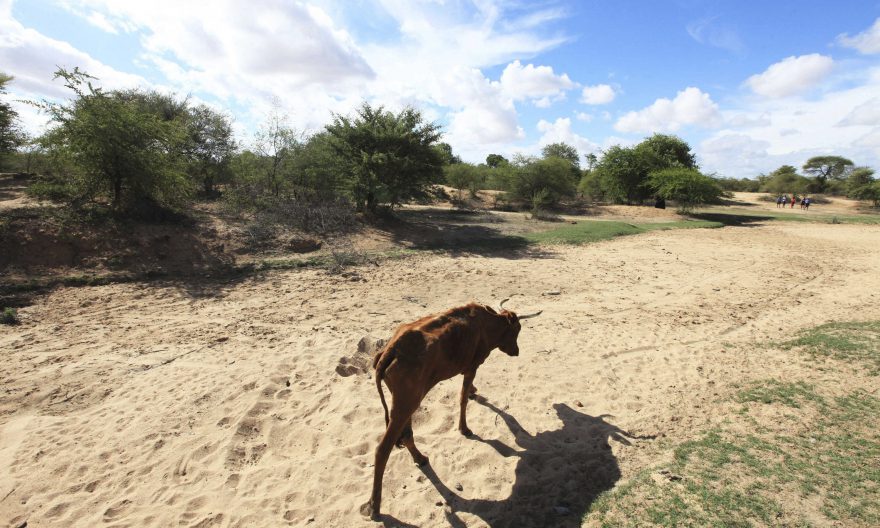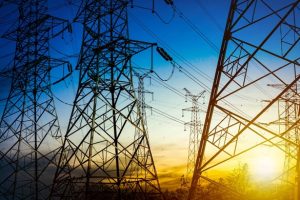
BY STAFF REPORTER
Climate is a global asset the protection of which needs global alliance and collaboration. The response of the international community to the problem of climate change is organized under the UNFCCC, adopted at the 1992 Rio Earth Summit and now includes 186 countries. As the name indicates, the FCCC is an institutional framework for a multilateral response to climate change. The highest decision-making body of the convention is the Conference of the Parties (COP). All states that have ratified or acceded to the convention are parties to the FCCC. The COP meets annually, with its two attendant bodies — the Subsidiary Body for Scientific and Technological Advice, and the Subsidiary Body for Implementation — meeting between sessions. The COP and subsidiary bodies are serviced by a secretariat. The COP can review existing commitments, as well as adopting new ones — such as those agreed on under the Kyoto Protocol in 1997. While the convention includes commitments, these are not binding.
Under the convention, both rich and poor countries accept commitments to submit ‘national communications’ including GHG inventories. They agree to adopt national programmes for mitigation and adaptation. Technology transfer is another broad commitment. All parties agree to take climate change into account in policy-making and planning, cooperate on scientific matters, and promote education and the exchange of information. It is recognized that the implementation of commitments by developing countries will depend on financial and technical assistance from rich nations.
Although the richest, most developed countries in the world are overwhelmingly to blame for the catastrophe of global climate change, they are not the ones who will suffer the most from it, rather the poorest countries.
The unfairness of that is self-evident, but so is the truth of it. For more than a century, the largest emitters of greenhouse gases, in total as well as per capita, have been the big developed nations, most notably the United States and the countries of Europe, which grew their economies by burning fossil fuels and spewing carbon from their factories, homes and cars. Today they still emit carbon and other greenhouse gasses disproportionately into the environment, although other big countries such as China and India have caught up.
Greenhouse gas emissions from developing countries will likely surpass those from developed countries within the first half of this century, highlighting the need for developing country efforts to reduce the risk of climate change (C2es.org).
Renewed international engagement will be critical as we push for change at the global level. A study report by UNDP in late 2019 indicates that developing countries are leading the world in responding to climate change, according to a new report launched today which calls for bold, urgent action to limit the impacts of global warming.
At least 112 countries, including many of those most vulnerable to climate change and least responsible for its causes, aim to update by 2020 their current plans – known as ‘nationally-determined contributions’ or ‘NDCs’ – to fight climate change, according to the report.
75 countries, representing 37 % of global Greenhouse Gas (GHG) emissions, are leading the way with intentions to enhance ambition in their next NDCs –either by curbing GHG emissions, or including measures to make societies more resilient to climate change, or both. More than 40 are Least Developed Countries (LDCs) and Small Island Developing States (SIDS). Almost three-quarters have indicated their NDCs will include enhancements for adaptation. In sectors such as water, agriculture, health, ecosystems and forestry.
The remaining 37 nations, representing 16 per cent of global GHGs, intend to “update” their existing plans. An update may be to reflect the latest scientific data or trends in emissions Through this process, however, opportunities for bolder action might emerge. Just 14 nations have signalled they have no plans to submit revised climate plans.
The report explains that 71 countries – including most developed nations – are still deciding on how they intend to approach their NDC revisions. Some nations had already set themselves very ambitious goals in 2015 and therefore may find it harder to do so again. Also, many developing nations want to do more but need finance to match their ambitions.
In addition 67 nations intend to incorporate considerations about gender equality and women’s empowerment into their revised plans.
Environmental activist group Extinction Rebellion, also known as XR, have blocked up busy areas in Central London on Monday, August 23, as part of a new wave of protests and demonstrations planned over the course of the next two weeks.
While developing countries speed up their implementation of the commitment as per the 2015 Paris agreement, currently there are strong movements in the developed world requesting governments and institutions to streamline anti-climate change efforts. Most of the movements are carried out by demonstrators that are coordinated by activist groups like Extinction Rebellion (XR).
For instance, recently XR has promised two weeks of disruptions across London – branded the “Impossible Rebellion”. The city was targeted to highlight the role of high finance in the climate crisis, not to mention in the lead up to the UN climate summit COP26 to be held in Scotland in November.
“As floods, fire and famine break out around the world, it is clear that climate breakdown is here now,” XR said in a statement. “And there is no choice left now but to take urgent action. Everyone deserves a seat at the table to have a say in how to tackle the greatest crisis of our times.”
Extinction Rebellion, first formed in 2018, is a network of climate activists who uses vibrant demonstrations and civil disobedience to spotlight inaction over global warming and climate change. After causing multiple days of major traffic disruption leaving London at a standstill two years ago, the group looks to repeat their efforts to highlight the urgency for climate action and for their voices to be heard.
A number of subsets of the group have been formed since then, including in Oslo, Norway. Around the same time on Monday, XR activists in Oslo blocked a major road junction and broke into the oil ministry as part of the two-week protests ahead of the Norwegian legislative elections on September 13.
The struggle of the activists in the developed nations is worthwhile to pursue the burning concerns of developing nations. The developing nations should also streamline overall endeavor to give due attention to the issue of climate change.
THE ETHIOPIAN HERALD AUGUST 25/ 2021





